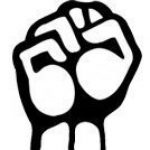 Don’t ask me why I was watching a bit of the extravagant but dead boring Olympics closing ceremony, and to be honest, also one or two events, when my interest in sports aspires to nil. I read the Guardian/ICM poll results, that 55 per cent of Britons considered the games ‘well worth’ the huge £9bn expense because they ‘were doing a good job in cheering the country during hard times’, and wondered how can the expense be justified in the face of the social problems that need tackling in Britain and elsewhere.
Don’t ask me why I was watching a bit of the extravagant but dead boring Olympics closing ceremony, and to be honest, also one or two events, when my interest in sports aspires to nil. I read the Guardian/ICM poll results, that 55 per cent of Britons considered the games ‘well worth’ the huge £9bn expense because they ‘were doing a good job in cheering the country during hard times’, and wondered how can the expense be justified in the face of the social problems that need tackling in Britain and elsewhere.
I then watched this country go crazy about Katie Taylor and the other boxers, show jumpers and sailors, and like the spoilsport I normally am, I couldn’t but reflect on some lessons of the extravaganza, which not only cost a fortune, but also heightened divisive nationalist sentiments.
Let me start with racism. If anything, it appeared that there was near to no racism in the London Olympics, if we don’t consider PM David Cameron’s announcement that he was ending the two hour weekly PE lessons in schools, replacing them with competitive sports, because some schools ‘were teaching Indian dancing’ or such like during PE classes. Interestingly however, the pride in British 10,000m winner Mo Farah dismantled the facile idea of Britishness. Farah is from Somaliland, where his brother still farms in a tiny homestead in the savanna, and even though he is a British citizen, his victory highlighted the plight of Somaliland, caught in a desperate civil war in Somalia. Britishness seems irrelevant as, according to his brother, Mo ‘is a Somali, whichever flag he holds.’
Another point, the gap between rich and poor countries, was highlighted by the fact that Somalia could send only two athletes to London. Indeed it seems that the number of medals was proportionate to the amount of public money spent on training athletes. Thus Australia with ‘only’ $310m spent (some $10m per medal), trailed behind Britain which came third in the medal stakes, after the high spenders US and China.
According to the president of the Geelong AFL club, Colin Carter, was on the committee which, in the 2009 Crawford report on the future of sport, recommended more funding for grassroots sport, ‘in a world of massive countries spending a fortune on the Olympics, that is a race that it isn’t smart to even compete in. So don’t value success in that way’.
 Which brings me to another form of racial inequality. After boxer Traveller John Jo Nevin won his silver medal, he asked that all pubs in his native Mullingar be shut for his homecoming ceremony after a number of pubs failed to open or serve his relatives during his fights. His family chose not to watch the fights in a pub, and for me, this was the best thing that came out of the games – a young Traveller boxer who knows his place in the world, who is not shy about speaking out about anti-Traveller racism, while also representing Irish Travellers and his country with pride. Not a facile feel good factor, then, but a clear antiracist statement by those who experience it – thank you John Jo.
Which brings me to another form of racial inequality. After boxer Traveller John Jo Nevin won his silver medal, he asked that all pubs in his native Mullingar be shut for his homecoming ceremony after a number of pubs failed to open or serve his relatives during his fights. His family chose not to watch the fights in a pub, and for me, this was the best thing that came out of the games – a young Traveller boxer who knows his place in the world, who is not shy about speaking out about anti-Traveller racism, while also representing Irish Travellers and his country with pride. Not a facile feel good factor, then, but a clear antiracist statement by those who experience it – thank you John Jo.

You must be logged in to post a comment.